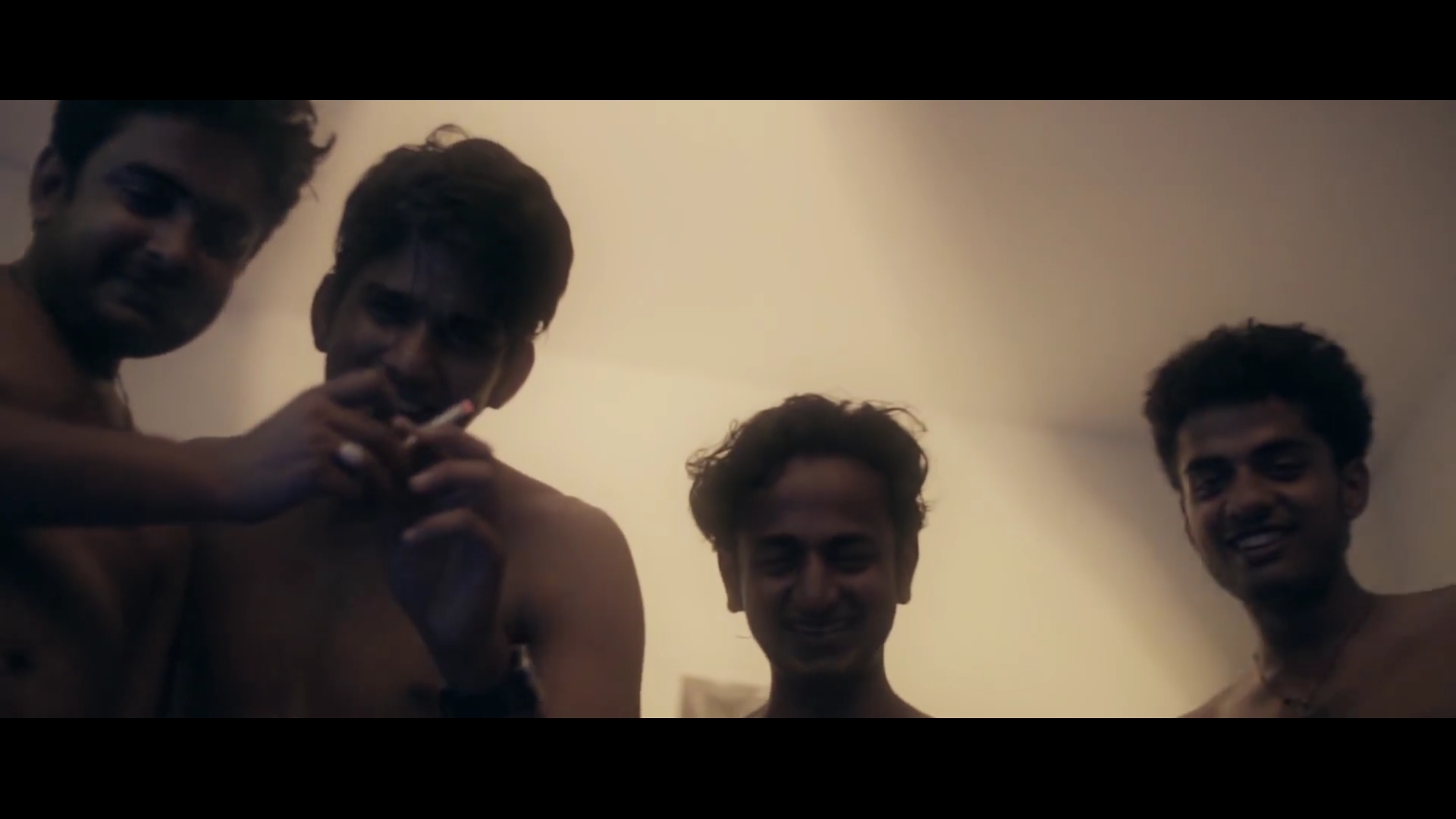The name Junko Furuta evokes a somber chapter in Japan's history, a case that continues to resonate with the public even decades later. This article delves into the tragic story of Junko Furuta, exploring the events that unfolded and their lasting impact on society. The case of Junko Furuta remains one of the most harrowing examples of human cruelty, leaving an indelible mark on the Japanese legal system and public consciousness.
Junko Furuta's story is not just a historical account but a cautionary tale about the importance of addressing societal issues such as bullying, peer pressure, and the need for systemic reforms in education and law enforcement. Understanding her story provides valuable insights into how such tragedies can be prevented in the future.
Through a comprehensive analysis of the events, this article aims to shed light on the circumstances surrounding Junko Furuta's ordeal, the legal proceedings that followed, and the broader implications of this case. By examining the factors that contributed to this tragedy, we can better understand the importance of fostering safer communities and ensuring justice for victims.
Read also:Did Barron Trump Sing On Americas Got Talent
Biography of Junko Furuta
Early Life and Background
Junko Furuta was born on September 3, 1970, in Tokyo, Japan. Growing up in a modest family, she attended Tokiwa Junior High School, where she was known for her academic performance and quiet demeanor. Despite her unassuming nature, Junko found herself entangled in a series of events that would tragically alter the course of her life.
Below is a summary of her personal information:
| Full Name | Junko Furuta |
|---|---|
| Date of Birth | September 3, 1970 |
| Place of Birth | Tokyo, Japan |
| Education | Tokiwa Junior High School |
| Date of Incident | November 25, 1988 |
The Tragic Incident
Events Leading to the Crime
The events that unfolded on November 25, 1988, marked the beginning of a horrific ordeal for Junko Furuta. After participating in a school tennis tournament, Junko was abducted by four classmates who were dissatisfied with her performance. What initially seemed like a minor conflict escalated into a brutal act of violence that lasted over four months.
During this time, Junko was held captive in an abandoned building, subjected to relentless physical and psychological abuse. The perpetrators, all minors at the time, demonstrated a disturbing level of cruelty, highlighting the dangers of unchecked bullying and the lack of intervention from adults.
Legal Proceedings
The Trial and Verdict
The legal proceedings against the perpetrators of the Junko Furuta case were complex and highly publicized. Due to their status as minors, the defendants were tried in juvenile court, sparking widespread debate about the adequacy of Japan's juvenile justice system. The court ultimately sentenced the four boys to varying terms of imprisonment, with the ringleader receiving the harshest punishment.
According to a report by The Japan Times, the case led to significant changes in the way juvenile crimes were handled, emphasizing the need for stricter penalties and increased accountability for young offenders.
Read also:African Telegram Channels List A Comprehensive Guide To Exploring The Best Channels
Social Impact and Public Reaction
Public Outcry and Media Coverage
The Junko Furuta case garnered extensive media coverage, capturing the attention of both domestic and international audiences. The graphic nature of the crime and the young age of the perpetrators sparked outrage and calls for reform. Many questioned how such an incident could occur without intervention from teachers, parents, or law enforcement.
Public reaction was characterized by a mix of anger, grief, and a demand for justice. The case became a rallying point for advocates of stricter laws against bullying and greater support for victims of abuse. It also highlighted the need for improved communication between schools, families, and communities.
Factors Contributing to the Tragedy
Bullying and Peer Pressure
One of the key factors contributing to the tragedy was the pervasive culture of bullying within the school environment. Junko's abductors were driven by a desire to assert dominance and exert control over their peers, a behavior often fueled by peer pressure and a lack of empathy. Studies by the UNICEF have shown that bullying can have severe psychological effects on both victims and perpetrators, underscoring the importance of early intervention and education.
Efforts to combat bullying must focus on creating a supportive environment where students feel safe to report incidents and seek help. This includes implementing anti-bullying programs, promoting open dialogue, and encouraging empathy and understanding among students.
Psychological Effects on Victims
Long-Term Impact of Abuse
The psychological effects of abuse can be profound and long-lasting, affecting victims well into adulthood. In the case of Junko Furuta, the trauma she endured likely had devastating consequences on her mental and emotional well-being. While Junko did not survive the ordeal, her story serves as a reminder of the importance of addressing the psychological needs of abuse victims.
Research published in the National Institutes of Health highlights the need for comprehensive support systems for victims of abuse, including access to counseling, therapy, and other mental health resources. Such interventions can play a crucial role in helping victims rebuild their lives and regain a sense of normalcy.
Reforms in the Japanese Justice System
Changes in Juvenile Law
The Junko Furuta case prompted significant reforms in Japan's juvenile justice system. Recognizing the limitations of existing laws, lawmakers introduced stricter penalties for juvenile offenders and increased transparency in legal proceedings. These changes aimed to ensure that justice was served while also addressing the root causes of juvenile delinquency.
Among the reforms was the introduction of measures to improve communication between schools and law enforcement agencies, as well as the establishment of programs aimed at rehabilitating young offenders. These initiatives reflect a growing recognition of the need for a balanced approach to juvenile justice that prioritizes both accountability and rehabilitation.
Lessons Learned from the Case
Preventing Future Tragedies
The lessons learned from the Junko Furuta case are invaluable in preventing similar tragedies in the future. By examining the factors that contributed to the incident, we can identify areas for improvement in education, law enforcement, and community support systems. Key takeaways include the importance of fostering empathy, promoting open communication, and ensuring accountability for all members of society.
Efforts to prevent future incidents must involve collaboration between schools, families, and communities, as well as the implementation of evidence-based strategies to address bullying and abuse. By working together, we can create safer environments where individuals feel valued and supported.
Memorializing Junko Furuta
Honoring Her Legacy
In memory of Junko Furuta, various memorials and initiatives have been established to honor her legacy and raise awareness about the issues surrounding her case. These efforts serve as a reminder of the importance of standing up against injustice and advocating for the rights of victims. Through education and awareness, we can ensure that Junko's story continues to inspire positive change.
Memorials often include educational programs, community events, and support groups aimed at addressing the root causes of violence and promoting peace and understanding. These initiatives reflect a commitment to creating a better future for all individuals, regardless of their background or circumstances.
Conclusion
The story of Junko Furuta is a poignant reminder of the importance of addressing societal issues such as bullying, abuse, and systemic failures. By examining the events surrounding her tragic ordeal, we can gain valuable insights into how such incidents can be prevented and justice can be served. The case also highlights the need for ongoing reforms in education, law enforcement, and community support systems to ensure a safer and more just society.
We invite you to share your thoughts and reflections on this article in the comments section below. Your feedback is invaluable in helping us improve and expand our coverage of important topics. Additionally, feel free to explore other articles on our site for more in-depth analyses of critical issues affecting our world today.
Table of Contents
- Biography of Junko Furuta
- The Tragic Incident
- Legal Proceedings
- Social Impact and Public Reaction
- Factors Contributing to the Tragedy
- Psychological Effects on Victims
- Reforms in the Japanese Justice System
- Lessons Learned from the Case
- Memorializing Junko Furuta
- Conclusion


